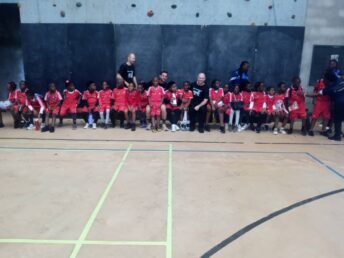Have you ever come across that moment of frustration where you weren't approved in a job interview and you don't really know why? Or, did you leave an interview believing it was the best day of your life, and then receive negative feedback? This is more common than you might think! There are mistakes in the job interview that can knock you down in the selection process .
And it doesn't matter how many years of experience a person has due to lack of preparation or nervousness.
In this way, check out in this article what are the most common mistakes in a job interview so that you can avoid them.
After all, when it comes to the job interview, you should know what to do to perform well, but part of this preparation should also consider what you shouldn't do .
Beware of first impressions
A job interview doesn't start in the room with recruiters. It starts the moment you walk into the company and introduce yourself to the receptionist or secretary.
So be careful beforehand. If your interview was scheduled for eight o'clock in the morning, set aside the entire morning to dedicate it to your interview.
And watch your posture and behavior in the waiting room.
That is, if they are taking too long to call you, don't show that you are impatient or nervous.
You may not even realize it, but you are being watched from the moment you set foot in the company. And inappropriate behavior like arrogance, lack of friendliness can bring you down and make a bad first impression.
And then let's move on to another point: this idea that first impressions last is totally valid for a job interview.
This first impression is the most important and difficult to undo.
A well-prepared candidate is one who makes a good impression on entry and reinforces that impression on exit.
On the other hand, if the company's first impression of you is poor, chances are the recruiter will lose interest in you during the interview, and that will hurt you in a number of ways.
So keep a proper posture, be careful with your behavior. And that's the first point you should observe. Besides, it's one of the most common job interview mistakes: people forget their posture right at the entrance to the company.
Don't make that mistake!
And to help you even more, we have listed below 12 mistakes in the job interview, which are committed during the process. And don't worry, these are common mistakes that you might not even imagine you're making. But, surely they can be avoided.
1. Mistakes in the job interview: showing negativity
Frustrations and conflicts arise at any time and in any environment, whether professional or not. However, the recruiter does not want to analyze if you have already had conflict situations.
On the contrary, he wants to assess how you deal with them, and how you manage your emotions every time a moment of frustration appears in your life, regardless of the reason.
Therefore, showing negativity and letting your emotions take care of you by commenting on some frustrating experience is not the best way to present yourself and this is also one of the most common mistakes in a job interview.
Therefore, demonstrate in a positive way how you would deal if any conflict happened in the company and show how you would help people on your team to continue with their work.
Position yourself as a positive influence on the recruiter and avoid showing negative feelings and emotional inadequacy.
2. Lack of interpersonal skills and confidence
Another feeling that can bring you down in the job interview is showing a lack of confidence and poor interpersonal skills.
Attitudes such as lack of posture, lack of eye contact with the recruiter, speaking very softly, showing fear of issuing an answer demonstrate a lack of confidence and are mistakes in the job interviews often observed by recruiters.
Even if you are nervous, it is necessary to make an effort and show yourself as a safe, confident person who knows his purpose very well in the interview.
3. Lack of preparation
The two previous errors are characteristics of candidates without any preparation for the selection process. And this lack of preparation is one of the most common and embarrassing job interview mistakes.
Excellent candidates work towards their development, working hard to successfully manage their careers and be valued. However, it is not enough to enter the company's website or job platforms, read the opportunity and apply.
From the moment you decide to send your resume for a vacancy, you must prepare for the process. Thus, when you are selected for the job interview, the possibilities of offering your best increase.
Therefore, research about the company, about the culture, mission, values and even the challenges that the company is facing at the moment.
Knowing the company and demonstrating this in the interview shows that you are really interested and take the entire selection process seriously.
And it doesn't need much effort, just interest and dedication.
4. Mistakes in the job interview: showing arrogance
It's completely normal to be nervous or anxious before a job interview. What is not normal is to show excessive arrogance or rudeness as a result of this nervousness.
In addition, many people try to use an image of security and end up mistaking it for rude behavior.
This behavior can immediately eliminate you from the selection process.
Therefore, in the job interview, demonstrate empathy, sympathy and security. If possible, ask the recruiter questions that are pertinent to the company. Because, in addition to demonstrating your interest in the vacancy, it will also demonstrate your humility in asking questions.
Finally, it can happen that the recruiter is rude. In this case, don't be afraid to excuse yourself, get up and leave.
5. Job interview mistakes: Presenting unnecessary humor
In an interview, it is necessary to demonstrate, above all, professionalism and seriousness. This is the moment when you should do your best and show that you are fit to hold the position.
Therefore, be formal, polite, avoid using slang and inappropriate language for the occasion as much as possible.
Also, avoid unnecessary humor. Don't try to socialize or unwind in the wrong way.
It may be that the recruiter has a very serious profile and does not understand your humor, creating an embarrassing and unnecessary situation for you, eliminating all your chances of being hired.
6. Lying about skills and competencies or not being honest
A very common tactic used by candidates is to lie or "raise" about skills and competencies.
And even if you put some extra skills or competencies on your resume, the interview serves to test and prove this information. Soon, this attitude can put you in a real "tight skirt".
And let's imagine the following situation: you included in your resume that you have advanced knowledge in Excel, as it was one of the job requirements. The company didn't test this knowledge, it just confirmed it in the interview and you managed to pass, even with only basic knowledge.
7. Decorate answers
Preparing for a job interview doesn't mean you have to memorize all the answers and say them as soon as the recruiter starts the questionnaire.
Even though there are frequently asked questions in every question, the canned answers will demonstrate that you haven't prepared properly, and this is one of the most common job interview mistakes.
Demonstrating the ability to express your ideas, creativity and originality will earn you points in the job interview.
Answer everything naturally and try to stand out from the other candidates.
8. Job interview mistakes: giving vague answers
Just as you shouldn't memorize answers, also avoid vague or short answers. The recruiter is looking for the best talents to join the team of collaborators.
Therefore, try to be clear and objective in your answers. An alternative is to show logic in your answers. Give concrete examples and tell a short story to illustrate your example.
9. Not paying attention to the job description
Not paying attention is a mistake, because with certain questions you can get lost.
For example, if, when talking about your weaknesses, you say that you are “very perfectionist”, and the vacancy has as a basic requirement the ability to pay attention to details, you will certainly lose the recruiter's attention as a potential candidate.
So, pay close attention to the job description, and never lie. If you don't have a certain required skill, show what you will do to acquire it.
And if the necessary skills and competencies are very different from yours, then rethink whether the vacancy is really for you. If not, don't worry. Look for an opportunity that better aligns with your profile and your chances of being approved will increase.
10. Job interview mistakes: not knowing how to talk about yourself
When a recruiter asks you to talk about yourself, he actually wants to know if you have the profile for the job.
So don't waste time saying your name, your age, if you have children or where you were born. All of this will be on your resume or registration form.
Be objective and talk about your professional history succinctly, talk about your career and how your experience can add to this vacancy. Also, talk about your skills and knowledge and show the company that you are the ideal candidate.
But be careful not to praise yourself too often. It's important to describe your accomplishments and what you did to achieve them.
However, bragging too much is seen as one of the most common job interview mistakes and one that can get you downgraded in the process.
11. Over communication or worse: not communicating
And yet, always focus on the questions being asked, never inflate a story in an attempt to impress, as you will certainly be doing the opposite. There's nothing worse than interviewing someone who talks non-stop and doesn't let the recruiter guide the interview according to the objectives of the job and the company.
The same goes for candidates who cannot express themselves correctly, or, due to lack of confidence, say little about a certain subject.
Surely the recruiter will urge you to speak. On the other hand, this should not be his obligation.
Even if you don't like to talk a lot, at least be clear in your answers and answer exactly what the recruiter is asking you.
Finally, beware of wrong answers. Pay attention to the questions, and don't be ashamed to ask if any questions are not clear to you.
Better to ask than to give a wrong answer that is totally out of context with what the evaluator would like to know.
And put your thoughts in order before answering. After all, your speech needs cohesion.
12. Indiscretion regarding private life
One of the most common job interview mistakes is being indiscreet about your private life.
Avoid including information such as “personal hobbies and interests” on your resume. And if asked at the time of the interview, look for activities that you enjoy doing and that add value to the position in question.
For example, you like to play football and this is an activity that you do every weekend with your friends. This can show that you have the ability to work in a team, as well as emotional skills, that is, to control impulses. Also, if you are the captain of your team, and the role requires leadership skills, that will be a plus point for you.
However, always keep the interview at a professional level, never say too much personal information.







